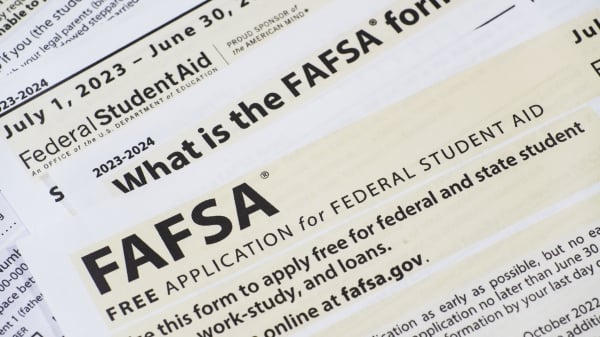With the recent changes to the Free Application for Federal Student Aid (FAFSA) process, current students have found themselves feeling left behind in the conversation surrounding financial aid. The changes to the FAFSA have primarily focused on simplifying the application process for future students, but many current students feel overlooked and neglected in the process.
One major change to the FAFSA is the implementation of the Prior-Prior Year (PPY) system, which allows students to use tax information from two years prior when filling out the application. While this change has made the process more efficient for incoming students, current students are struggling to adjust to the new timeline. Many students who are already enrolled in college have found themselves caught off guard by the sudden shift, leading to confusion and frustration.
Additionally, the changes to the FAFSA have also raised concerns about accessibility and equity in the financial aid process. Some current students have reported difficulties in accessing the necessary resources and information to complete the application, leading to delays and potential gaps in funding. This has sparked conversations about the need for additional support and guidance for current students as they navigate the new FAFSA requirements.
It is essential for policymakers and higher education institutions to consider the needs of current students when making changes to the financial aid process. These students are already juggling the demands of college life and should not be left behind in the conversation surrounding FAFSA changes. Providing adequate support and resources for current students can help ensure that they are able to continue their education without unnecessary barriers or obstacles.
Moving forward, it is crucial for stakeholders to prioritize the needs of current students and work towards addressing their concerns in the FAFSA change conversation. By acknowledging and addressing the challenges that current students face, policymakers can ensure that all students have access to the financial aid they need to succeed in college.


